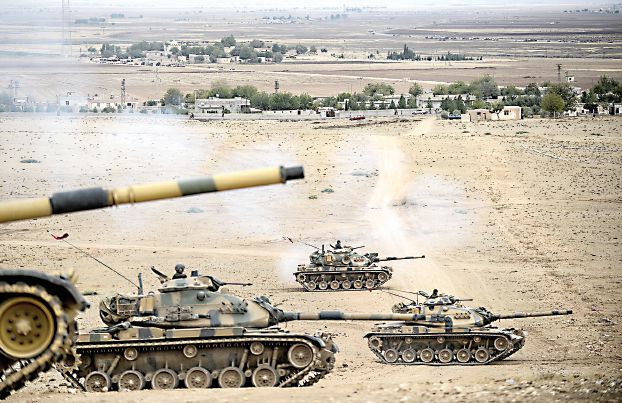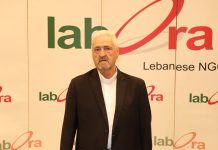A war going according to plan – but which plan?
By: Paul Rogers /Open Democracy
09 October 2014
A letter from Raqqa, in the heart of territory controlled by the Islamic State.
United States military publications are full of analyses of the “third Gulf war”, one of the most common views being that airstrikes may not be enough. The Washington administration, including the Pentagon, is warning of a long war that will stretch over some years. But there is satisfaction at the extent of the international coalition and at some elements of progress, especially the manner in which some Islamic State advances have been halted, not least near Irbil and around the Mosul and Haditha dams. This is not to suggest that the war is going according to plan, but in the current circumstances it at least makes sense to see it from another perspective. Why not that of a young Iraqi engaged in communicating an unvarnished view to the IS leadership? Perhaps not as neutral as those SWISH consultants – but IS does not feel it needs to consult them, at least not yet.
Raqqa, 9 October 2014
When I came to Raqqa two years ago my brother had been here for more than a year and was already a platoon leader. He had fought the American special forces in Anbar for three years until captured and tortured late in 2006, so he had even survived Operation Arcadia. After four years in Bucca camp – a singularly formative educational experience where he learnt much about US military attitudes – he was finally released. He had, though, lost two uncles and three cousins to American and British attacks, with our father, two aunts and four cousins killed in airstrikes and two more cousins maimed for life. It was hardly surprising that he joined up with the Baghdadi group at the first opportunity, nor that I should follow him not long afterwards.
So where are we now? First, let’s just remember that we have more than one aim and a thorough mix of motives. Behind it all is the desire to be part of the historic mission to restore the Caliphate, bringing true rule to the world even if it takes centuries, but there is more to it than that.
Inevitably we have hugely bitter feelings towards the Shi’a in Iraq and do not see Haider al-Abadi as any different to Nouri al-Maliki. We are passionately opposed to Bashar al-Assad and his Alawi clan but also hate the utterly unacceptable Sunni regimes dominating our region, most of all the appalling House of Saud and its preposterous claim to be Guardian of the Two Holy Places. Beyond that lies the American-Israeli nexus, its occupation of the Third Holy Place, with the Zionist massacres of our Palestinian friends a continuing atrocity.
I have only been here a couple of years and much of my work is analysing western attitudes, but I simply cannot understand the reaction to our killing of hostages, Iraqi soldiers and police and other opponents. Is it really worse to be beheaded, a near instant death, or to die slowly from hideous burns, from being shredded by hundreds of sub-munitions or crushed slowly to death under a collapsed building? Sure we make an example of captured soldiers and police, but that scares off others and makes our task easier. It is no different to innumerable attacks done by the Americans over the past ten years, including those which they themselves characterised as punitive.
Yes, we dress hostages in orange jump-suits and maybe that makes a few in the west think, but how many know there are still more than a hundred in Guantánamo, many there for more than a decade and likely to be kept in prison for the rest of their lives – a slow living death with no hope of an end to it, not quick and merciful.
But I’m getting away from myself when I really wanted to write down where we are now, perhaps the start of an occasional diary but I will keep this first entry brief.
The Americans started their airstrikes exactly two months ago, more or less when we expected them to do so, and so we had dispersed most of our assets in good time. They did have some effect here and there and halted a couple of advances, but much of the equipment they hit was surplus to our requirements and was mostly their own stuff anyway.
They’ve done 388 raids so far, the majority in Iraq, and they are now having trouble trying to identify suitable targets. Yes, they do have British, French, Belgian, Danish, Australian and Canadian aircraft either here or on their way, as well as some from a few local states, although the latter are almost entirely incompetent.
They still say they will not put “boots on the ground” but the numbers of special forces are creeping up and the Pentagon is currently moving a army brigade HQ to Iraq, a sure sign that more is planned.
The only operation that took us by surprise was the first big raid on Syria, but it was not their attacks on us that caught us out. Apart from a few unlucky supporters killed at a roadblock outside the city we had long since evacuated everyone and had also dispersed almost all our weapons and kit.
No, the surprise was the effort they put into trying to damage the Khorasan group over in the west. We have nothing to do with them and their weird insistence in plotting attacks abroad, but they certainly scared the Americans. In the event, it kept the pressure off us so Khorasan actually did us a service.
I also find it weird how the western press seems to pick on just one happening – the Mosul dam attack or, just now, the fighting around Kobane – not getting even a remote understanding of the wider picture. What that picture shows is that we are making progress on many fronts, especially but not only in Anbar province. Even in Syria, Assad’s crowd still see us as an asset and long may that last, while the Turks are so conflicted on the Kurdish question that we see little threat from them apart from a possible symbolic action.
Our progress across northern Iraq three months ago was no surprise to us – after all we had been preparing for it for more than a year, and we are not seriously affected by the air attacks. We are therefore in a good position to consolidate our territorial control as we prepare for the long war. Indeed, our morale after two months of attacks has never been higher, born from the pleasure that we are now engaged in combat with a serious enemy not joke forces like the Iraqi army.
We are also doing amazingly well with all our international communications. The sophistication of the media operations is a joy to behold and is way ahead of anything the enemy can muster, especially in reaching out to young believers and drawing them to the cause. I understand that the leadership has some worries about the force with which mosque leaders are condemning us in some countries such as Britain, but these are small setbacks in an otherwise positive environment.
There is much else I could discuss but perhaps I might end on one big issue – where next and what do we most want our enemies to do? I am not close enough to the leadership to be sure, but the city is a hotbed of gossip and what I try to do is to listen to those sources that have been accurate in the past.
The word there is that what is most wanted is serious numbers of western boots on the ground. There are scores, if not hundreds, of men who fought Task Force 145 – a Rangers battalion, SEAL Team 6 and an SAS squadron – especially in that crucial 2005-06 period, and they seriously want revenge for the wholesale slaughter and torture of their friends and relatives.
Indeed, many of them live in eager anticipation of the opportunity to capture western troops and then dress them up in the orange suits, waterboard them, and execute them, all on video for worldwide distribution. Revenge will be sweet and for quite a few of them revenge is a far stronger motive than seeking the new Caliphate. It is just as well that the Americans and British have no understanding of this, making it all the more likely that they will blunder into yet another trap. How will this trap be sprung? Difficult to say, but I know one of the senior people close to Baghdadi is obsessed with the Tet offensive nearly half a century ago, sure that this time it will make the Americans increase their forces rather than withdraw. Where will it be sprung? Again, I can’t be sure but there is one pointer. The western media is making quite a lot of our recent advance between Fallujah and Baghdad, including this week’s success in and around Abu Ghraib. What they all seem to be missing is that we already have highly effective yet dispersed forces well ensconced in the western districts of Baghdad itself. Take a look at the area around Baghdad international airport, not doing much on the civil side but an absolute hive of military activity as the American forces pour in (Bing is far better than Google for this – much clearer maps). Then look to the west and east of the airport complex. Westwards is Abu Ghraib, barely ten miles away with lots of farms, irrigation ditches and villages between it and the airport – quite decent paramilitary country and easy to disperse. Then look to the east and within five miles are the crowded Baghdad suburbs of Saidya, Khadra, Ameria and, of course, the appropriately-named Jihad. None of them is openly under our control but we are everywhere. I may be wrong, but this is one bit of gossip I take seriously. Watch this space as we do our very best to wreak havoc and then get the Americans really involved, and this time on our terms. That’s all for now, more in a couple of months.



















